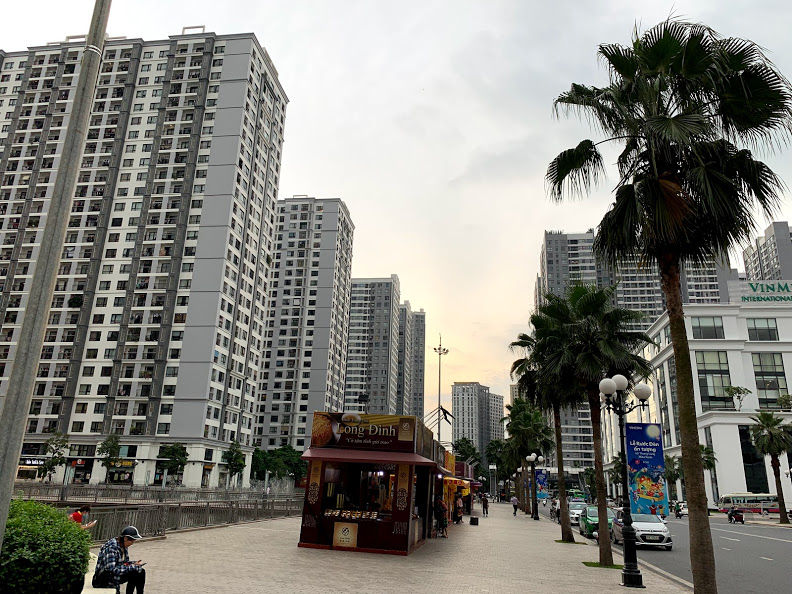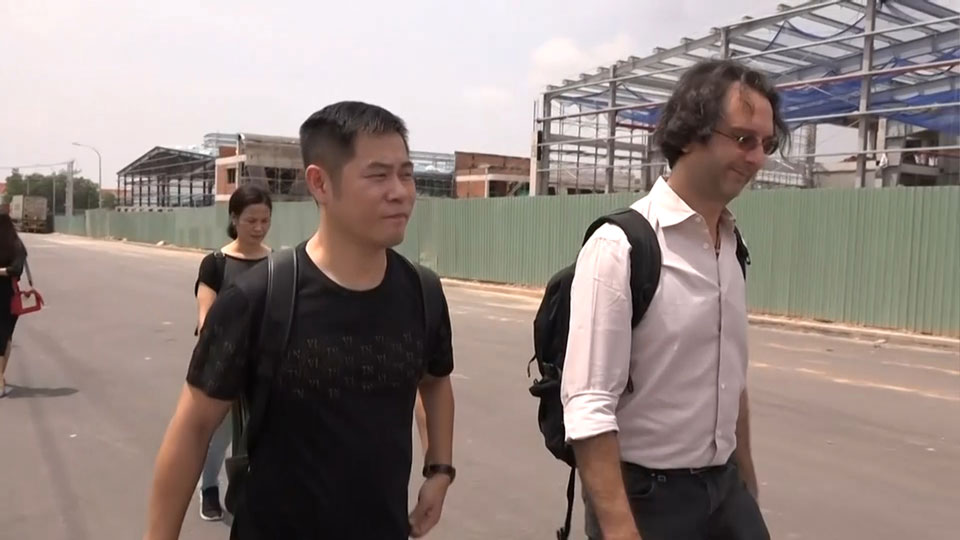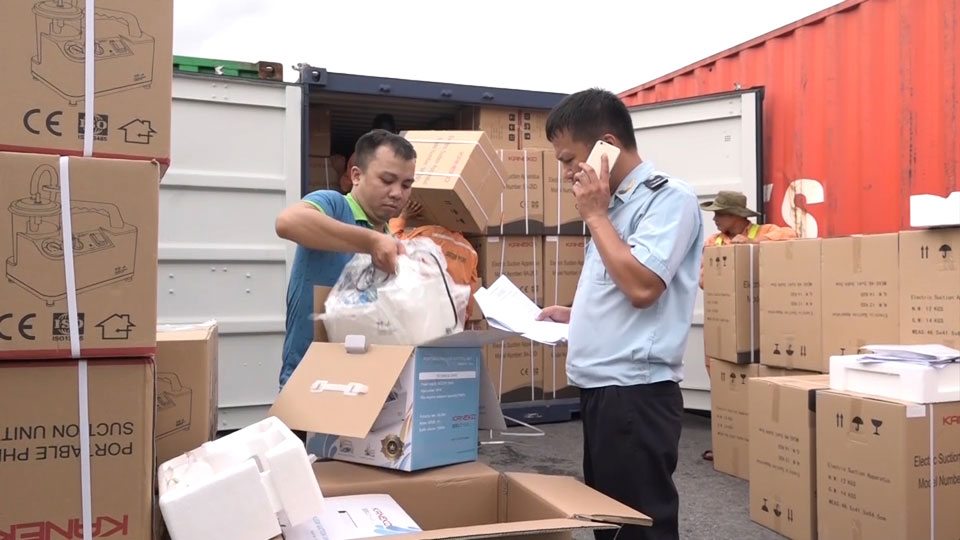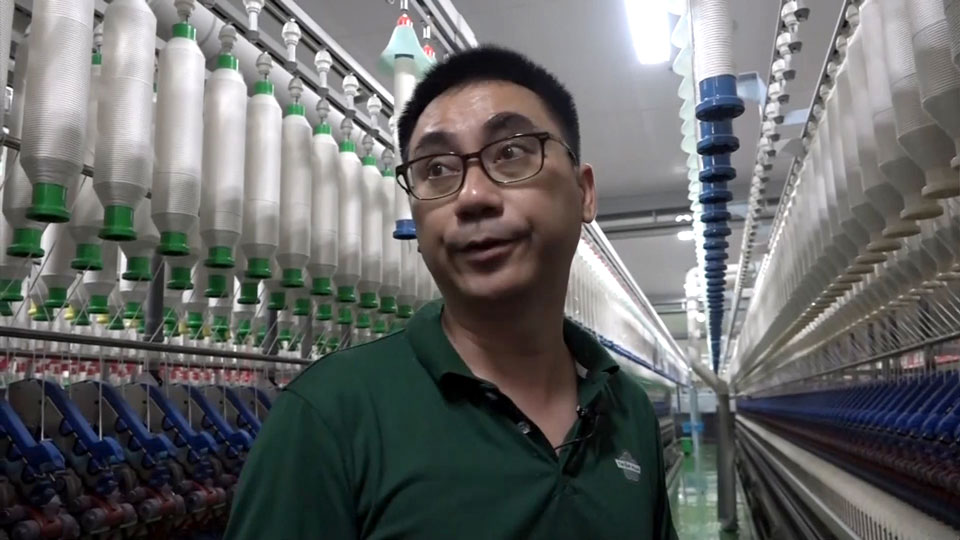Growth in Vietnam

In a newly-developed area of central Hanoi called Times City, signs of the booming economy are everywhere. It is a self-contained town, with 20 apartment buildings, a shopping mall, schools, and even a hospital. The price of a two-bedroom apartment starts at about 100,000 dollars, increasingly affordable for many people in the country.
Vietnam's gross domestic product has maintained a high growth rate, averaging about 6.8 percent over the last 30 years. The biggest factor behind this stability is the country's consistent economic policy under single-party rule. The Doi Moi reforms launched in 1986 were the catalyst for major economic change. The policies fostered a market economy, expanding the rights of corporations and recognizing the 100 percent foreign ownership of businesses. This brought in a massive increase in direct investment by foreign countries, attracted by the labor force, the relatively low wages, and the social stability.
Trade war drives growth
The impact of the US-China trade dispute is evident in recent data. From July to September 2019, Vietnam's GDP grew 7.31 percent from the same quarter last year, due largely to an increase in exports. This comes as more Chinese firms are shifting production bases to the country.

Officials from Ningbo Prosound Electronics, a Chinese manufacturer of electronic components, recently visited an industrial complex in southern Vietnam. The firm exports more than half of its products to the US. It says it is considering relocating to Vietnam to avoid the impact of the US tariff hikes.
"We have to find a way out of the problem, so we decided to look at Vietnam," Vice President Zhou Xiaosen says. "I think the environment is pretty good. This factory building is not bad, either."
China's direct investment into Vietnam in the first half of 2019 was nearly 1.9 billion dollars, the most by any country, ahead of the likes of Japan and South Korea.
Vincy Nguyen is a manager at the industrial park. She is in charge of getting more Chinese firms to relocate.
"It's a good opportunity for us to help small and medium enterprises coming to Vietnam open factories and also to help our country," she says.
Downside
But not everyone is happy. In June, US President Donald Trump threatened to act against companies leaving China for places like Vietnam. Washington suspects that some Chinese goods are being passed off as Vietnamese.
During a recent shipment inspection at a Vietnamese port, customs officials found shoes from China labeled as Vietnamese. Authorities are now stepping up the process and cracking down on illegal shipments. They fear becoming another US target if they aren't careful.

At the same time, some Vietnamese companies are already being hurt by the US tariffs. Tran Le Ha runs a spinning mill in Ho Chi Minh City. He used to send half of his threads to China. But exports to the country have fallen by 30 percent as the looming US tariffs have companies there holding off on purchases.
The trade war has also led to a fall in the Chinese currency, the yuan. This has forced Tran Le Ha to offer a 20 percent discount on his products.
"This is the most difficult time in 20 years," he says. "I think when the tariffs take effect, it will be very difficult for us. But we have to find a way to survive."

Experts say the US-China trade dispute could have a negative long-term effect on Vietnam. Washington is already suspicious of the sudden increase in Vietnamese exports, and could soon impose high tariffs.
In addition, the experts say the global economy will only worsen if the trade war continues. Vietnam relies heavily on global exports. If shipments to its largest trading partners -- the US and China -- fall, its economy could take a huge hit.
Challenges for the future
Vietnam owes much of its growth to foreign companies operating in the country. It now faces the challenge of making business easier for these firms. Some foreign companies complain of a lack of transparency. They say they are being charged fees for unclear reasons and that the business approval process is slow. This has discouraged new investment, and is even having an impact on existing businesses.
On top of that, Vietnam relies on exports from factories operated by multinational corporations. Products from Samsung, a South Korean company, currently make up about 25 percent of exports. Analysts say the transfer of technology from foreign companies is very slow in Vietnam.
The government knows it needs to nurture private, homegrown businesses. In order to make domestic companies as competitive as foreign ones, the government is encouraging local businesses to enter the industrial sector. But further growth of the private sector will depend on how much the government can support it with its policies.

